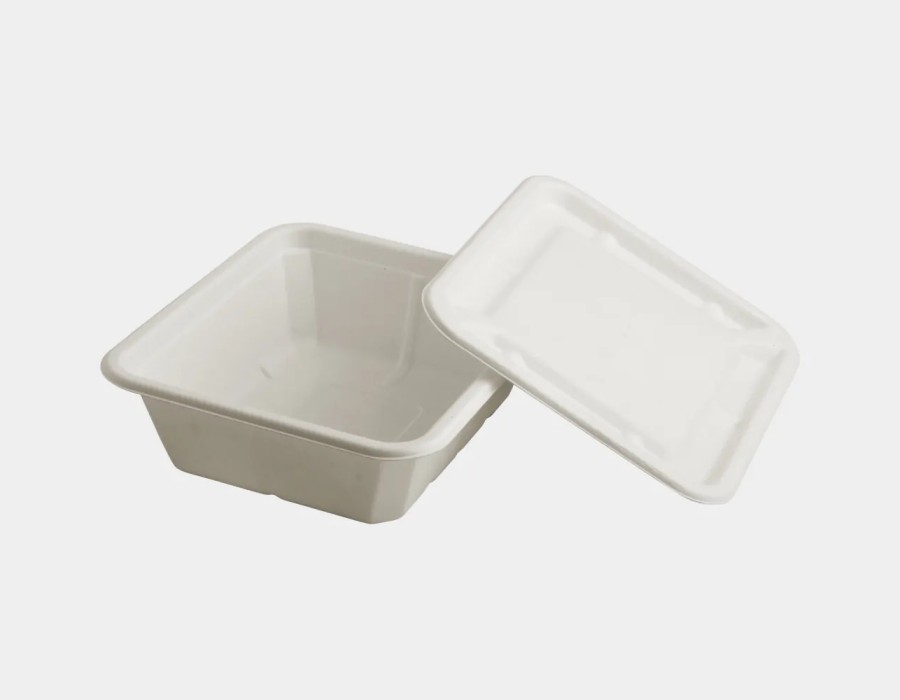As the world becomes more conscious of the environmental impact of plastic waste, fast food chains are increasingly seeking sustainable packaging solutions. One material that’s gaining significant attention is sugarcane food containers. Made from the fibrous residue left after extracting juice from sugarcane, known as bagasse, these containers offer an eco-friendly alternative to traditional plastic and styrofoam packaging. In this blog, we’ll explore why sugarcane food containers are the ideal solution for fast-food chains looking to reduce their environmental footprint while maintaining food safety and freshness.
What Makes Sugarcane Food Containers Eco-Friendly?
One of the most significant advantages of sugarcane food containers is their environmental sustainability. Unlike plastic, which can take hundreds of years to break down, sugarcane containers are biodegradable and compostable. This makes them a perfect fit for fast-food chains striving to minimize their environmental impact. Here’s why they are eco-friendly:
Made from Renewable Resources: Bagasse, the byproduct of sugarcane processing, is a renewable resource that would otherwise go to waste. By repurposing this material into food containers, manufacturers are reducing waste and lowering the need for non-renewable plastics.
Biodegradable and Compostable: Sugarcane food containers naturally decompose in a matter of weeks, particularly in commercial composting facilities. This means they won’t linger in landfills or oceans, contributing to plastic pollution. For fast food chains that generate a lot of waste, this is a crucial step toward achieving zero-waste goals.
Durable and Versatile for Fast Food Applications
Fast food chains require containers that can handle a wide variety of menu items, from hot burgers to cold salads. Sugarcane food containers are not only environmentally friendly but also practical and versatile for everyday use in the fast food industry.
Heat and Cold Resistant: Sugarcane containers are highly durable and can withstand both hot and cold foods. They’re safe for microwave use, making them convenient for customers who want to reheat their food. Additionally, they maintain their strength and structure even when used with hot meals like soups or fried items.
Leak and Grease Resistant: One of the main concerns for fast food packaging is the ability to handle greasy or liquid-based foods without leaking. Sugarcane containers have a natural resistance to moisture and grease, ensuring that food stays secure and customers have a positive dining experience.
Boosting Brand Image with Sustainability
In today’s eco-conscious market, customers are paying more attention to the sustainability practices of the brands they support. Fast food chains that adopt sugarcane food containers can enhance their brand image by aligning with environmental values and appealing to the growing base of eco-friendly consumers.
Attracting Eco-Conscious Customers: More consumers are prioritizing businesses that offer environmentally responsible products. By switching to sugarcane containers, fast food chains can attract a new segment of customers who are actively seeking out brands that take sustainability seriously.
Demonstrating Corporate Social Responsibility: Using sustainable packaging like sugarcane food containers allows fast food chains to show their commitment to reducing their environmental impact. This can lead to positive publicity, improved customer loyalty, and even increased profits as consumers reward businesses that prioritize the planet.
Cost-Effectiveness for Fast Food Chains
While eco-friendly packaging options are often associated with higher costs, sugarcane food containers offer a cost-effective solution for fast food chains. The widespread availability of sugarcane as a resource, coupled with advancements in manufacturing processes, has made these containers more affordable than ever.
Long-Term Savings: Fast food chains that invest in sugarcane containers can see long-term savings, particularly when factoring in the reduction of waste disposal costs. Many municipalities offer lower waste management fees for businesses that use compostable materials, leading to additional savings over time.
Scalability: Sugarcane containers are available in a variety of sizes and designs, making them suitable for any fast food chain, from small local eateries to large international franchises. The scalability of sugarcane food packaging ensures that businesses can switch to eco-friendly options without sacrificing efficiency or performance.
Supporting a Circular Economy
By choosing sugarcane food containers, fast food chains are actively supporting the shift toward a circular economy. Unlike traditional packaging materials that end up in landfills, sugarcane containers can be composted and returned to the earth as nutrient-rich soil.
Reducing Waste in Landfills: Fast food chains generate a significant amount of packaging waste, much of which ends up in landfills. By using compostable sugarcane containers, businesses can help divert waste from landfills and reduce the strain on our planet’s natural resources.
Encouraging Sustainable Practices: Implementing sugarcane packaging is more than just a green initiative—it’s a step toward encouraging sustainable consumer behavior. Customers who see fast food chains adopting eco-friendly packaging are more likely to make sustainable choices in their daily lives, further supporting environmental efforts.
Conclusion
Sugarcane food containers are the eco-friendly solution that fast food chains need to embrace in today’s sustainability-focused world. Offering a combination of durability, cost-effectiveness, and environmental benefits, these containers allow businesses to reduce their plastic footprint while enhancing their brand image. With sugarcane food containers, fast food chains can take a step toward a greener future, offering their customers not only great food but also a better way to enjoy it without harming the planet.





Comments